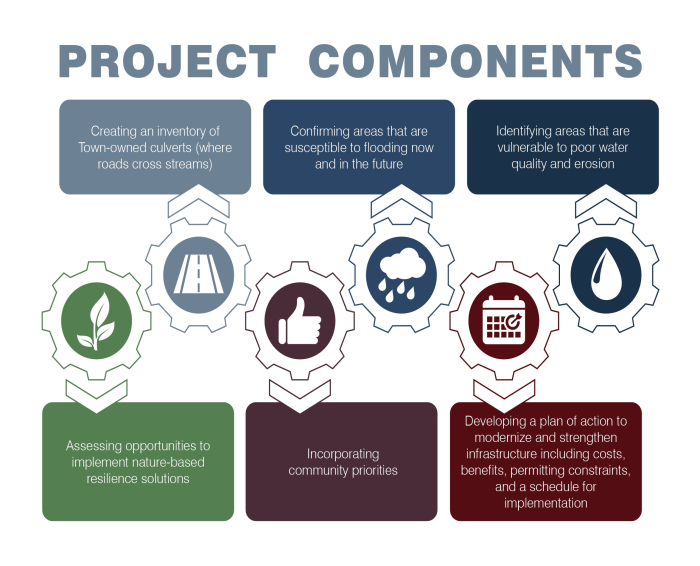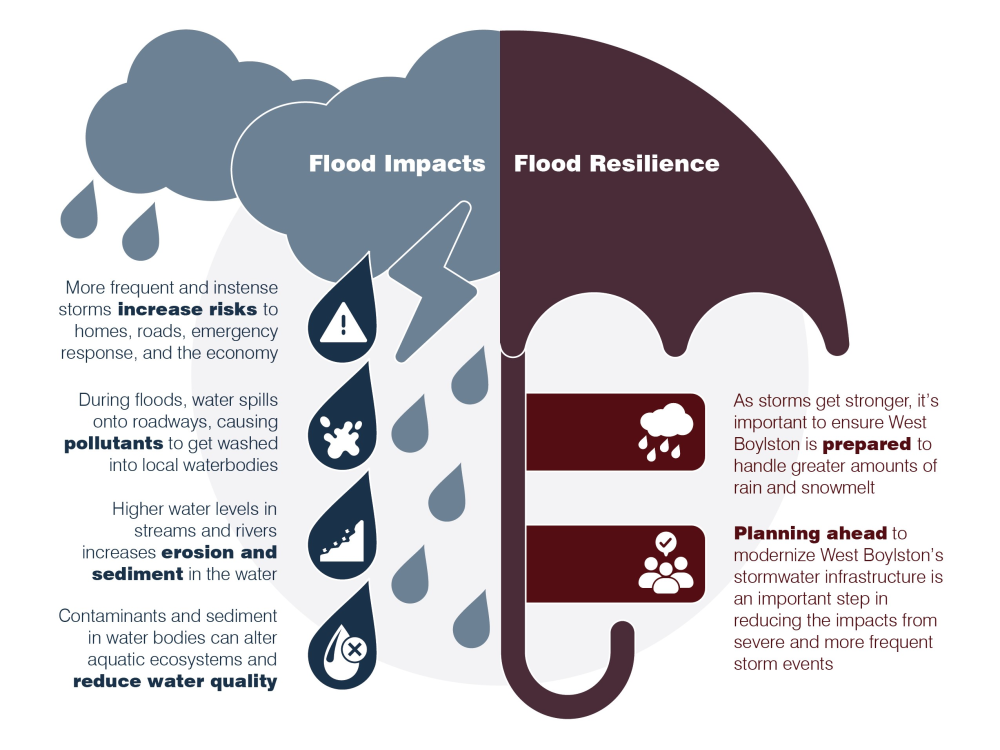Resilient Streams of the Wachusett Reservoir
If you would like this website in Spanish, please click here. Subvención de Acción de Preparación para la Vulnerabilidad Municipal (MVP) del Año Fiscal 2024
Overview
West Boylston is taking steps to make the community more resilient to climate change through participation in the Commonwealth’s Municipal Vulnerability Preparedness (MVP) Program. This program helps cities and towns in Massachusetts plan for climate change resilience and implement priority projects. The state awards communities funding for vulnerability assessments and develop action-oriented resiliency plans.
Grant Award
The Town of West Boylston, through the Department of Public Works, has received a $105,000 climate resilience grant. This funding, awarded by the Healey-Driscoll Administration’s Municipal Vulnerability Preparedness (MVP) program, which is administered by the Executive Office of Energy and Environmental Affairs (EEA), aims to create more flood-resilient infrastructure and areas in the Wachusett Reservoir watershed.
What’s Being Done:
With the grant, West Boylston is working on a plan to minimize the risk of flooding. This includes identifying climate hazards, estimating costs, analyzing benefits, and establishing a timeline for implementation. The goal is to improve resilience and implement priority actions to create infrastructure that can better adapt to impacts of climate change.
Project Components

Why Flooding Matters to West Boylston
Storms are becoming more frequent and intense, posing greater risks to our homes, roads, emergency response, and economy. To handle the increasing rain and snowmelt West Boylston is taking steps to modernize road-stream crossings (culverts) and streams. This proactive approach is crucial in reducing the impacts from severe and more frequent storm events.
Flooding’s Impact to Water Quality in the Wachusett Reservoir
During flooding events, water spills onto roadways and other developed areas, carrying pollutants such as pet waste, oil from leaking vehicles, trash, and debris into local waterbodies. In addition, Elevated water levels in streams and rivers lead to increased erosion of riverbanks, bringing more sediment into the water. The excess of contaminants and sediment in water bodies can alter aquatic ecosystems, threatening habitat, drinking water resources, and recreation activities.
Nature-Based Solutions – What Are They?
Nature-based solutions are adaptation measures that protect, restore, or manage the environment benefit public health, clean air and water, and resilience against natural hazards. Examples include rain gardens, permeable pavement, urban tree canopies, and planter boxes. These solutions contribute to caron sequestration and support a healthier, more resilient community.

For More Information
Project Contact: Director of Public Works, dpwdirector@westboylston-ma.gov
Additional resources:
Massachusetts Municipal Vulnerability Preparedness Program – Learn About the MVP Action Grant
Massachusetts Ecosystem Climate Adaptation Network – Adaptive Actions for Resistance, Resilience, and Transformation
Low Impact Development Center – Examples of Low Impact Projects
This project is funded by the Town of West Boylston’s Department of Public Works and the Massachusetts Executive Office of Energy & Environmental Affairs’ Municipal Vulnerability Preparedness (MVP) Grant program, which provides support for cities and towns to plan for climate change and to implement projects to build local resiliency.

